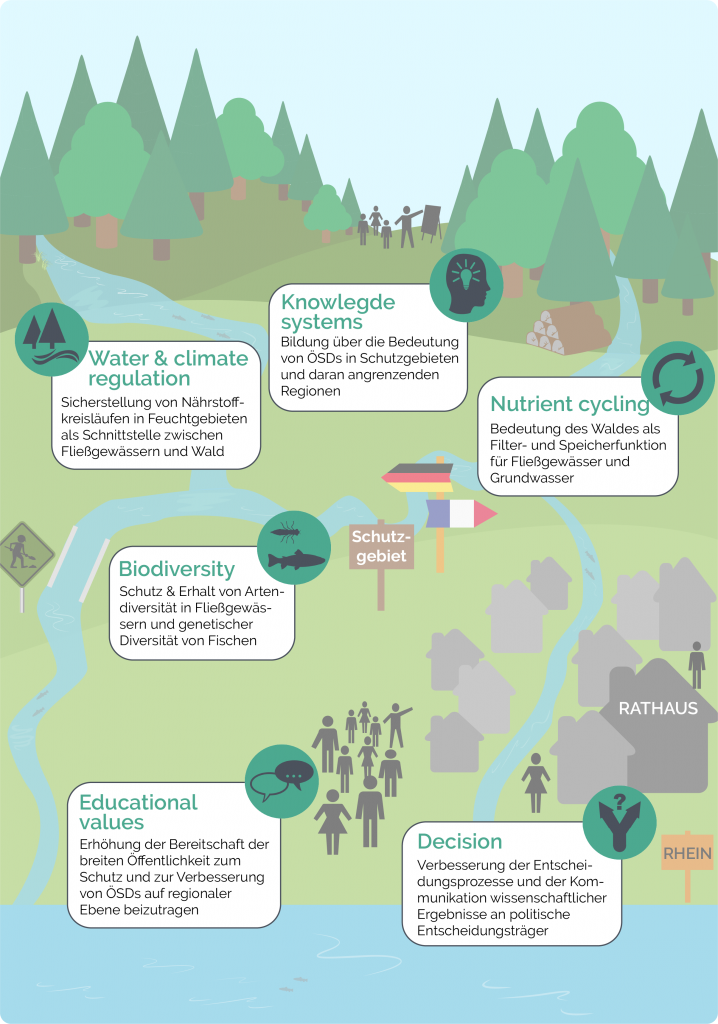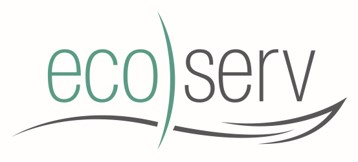The INTERREG project ecoserv investigated the ecosystem services of protected areas and adjacent regions over a period of three years, and developed tools and strategies to maintain and improve them in the long term.
Ecosystem services are of utmost importance to humans. However, habitat and climate changes as well as pollution, among other factors, are altering the structure of ecosystems and thereby potentially their capacity to provide ecosystem services. Therefore, the INTERREG project ecoserv, which is financed by the European Regional Development Fund, aims to improve the quality of ecosystem services in protected areas and adjacent regions.

We investigated the ecosystem services of the study area together with our French and German partners in six different subprojects over a time span of three years. To contribute to the preservation and improvement of ecosystem services, we developed instruments and strategies. The project focused on the highly relevant ecosystem services of the Upper Rhine region, namely groundwater, surface water, sustainable timber production, and habitats for the conservation of species and genetic diversity.
To improve communication of scientific findings in the future, the interaction of scientists and decision-makers was also investigated. In addition, since there is a lack of understanding of ecosystems, their services and their importance for people in society, materials for environmental education were developed. For this purpose, materials were created specifically for school classes, but also for the general public. The film “Was sind Ökosystemdienstleistungen?” [What are ecosystem services?], for example, aims to contribute to greater awareness of the term.
Further results of the subprojects of ecoserv will be presented in upcoming blog posts. More information about the project is available at http://project-ecoserv.eu/.

